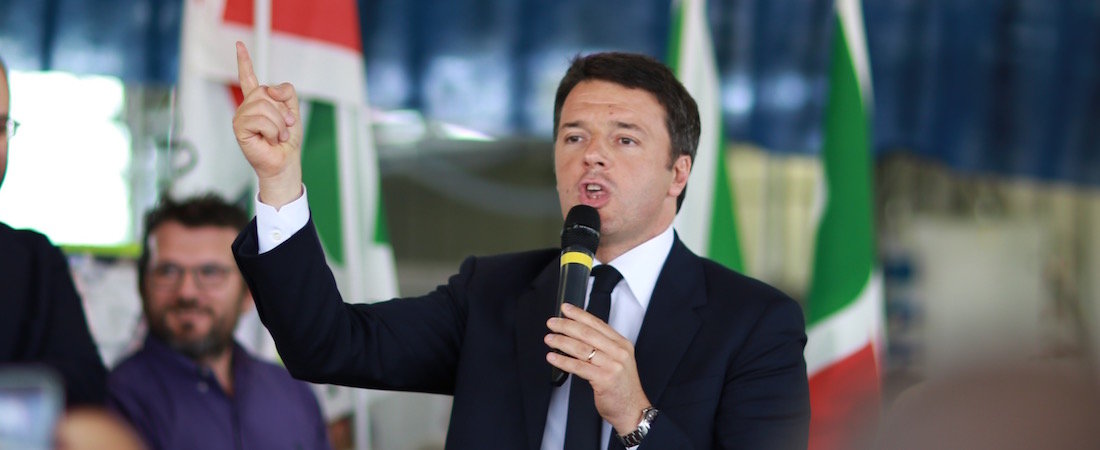It’s been almost a week since 59% of Italians voters rejected reforms to the country’s constitution. With Prime Minister Matteo Renzi quickly delivering on his promise to resign should he lose the vote, Italy’s political future looks uncertain.
Over the course of the campaign, the discussion increasingly focused on Renzi as a leader rather than on actual policy or the impact of the referendum on Italy’s political landscape. Polls showed that the referendum was widely seen as an opportunity to evaluate Renzi and his government’s performance, and to reject establishment politics.
Ironically, this was due in part to Renzi’s own strategic approach.
While a certain level of politicisation is inevitable in all referendums, Renzi’s promise to resign if he lost presented the perfect opportunity for his opposition to campaign against his political persona rather than campaign on the substance of the referendum’s policy. The YES camp was solely represented by those under Renzi’s control within the fragmented Partito Democratico (PD). But the NO side became a united front of his opposition across the political spectrum, including the populist Five Star Movement, right wing party Lega Nord, former Italian PM Silvio Berlusconi’s party Forza Italia, and even his opponents within the PD, namely Pier Luigi Bersani. This opposition of course objected to the reforms, but their campaign against Renzi took centre stage.
In many ways, Renzi’s strategic approach mirrored that of UK Prime Minister David Cameron during the Brexit campaign. Both leaders explicitly aligned government policy with their campaigns, thereby failing to distinguish between a political campaign and a referendum. Both were also instrumental in inserting warnings of a potential fall in their nation’s banking systems and collapse of the European Union throughout their campaigns. This enabled the opposition to express anti-elite discontent through campaigns against “bankers and bureaucrats from Brussels”.
Over the past 15 years, referendums in Italy have averaged 30% participation, while the 2012 political elections saw a voter turnout of 75%. Sunday’s participation of 65% makes this vote akin to a vote for or against Renzi’s leadership, with the 59-41 result representing a painful defeat to the man himself. However, if elections were held tomorrow, the result suggests that Renzi has a potential backing of 40% (note that polls suggest Renzi’s approval rating is 31%), which would give him a win by a high margin against a fragmented opposition.
A recent poll also showed 57% disapproval of the government’s work reflecting the referendum result. How many of them believe – as argued by prominent “NO voters” former PM Mario Monti and Italian constitutionalist Gustavo Zagrebelsky – that the country still needs to go through structural, not constitutional, adjustments?

